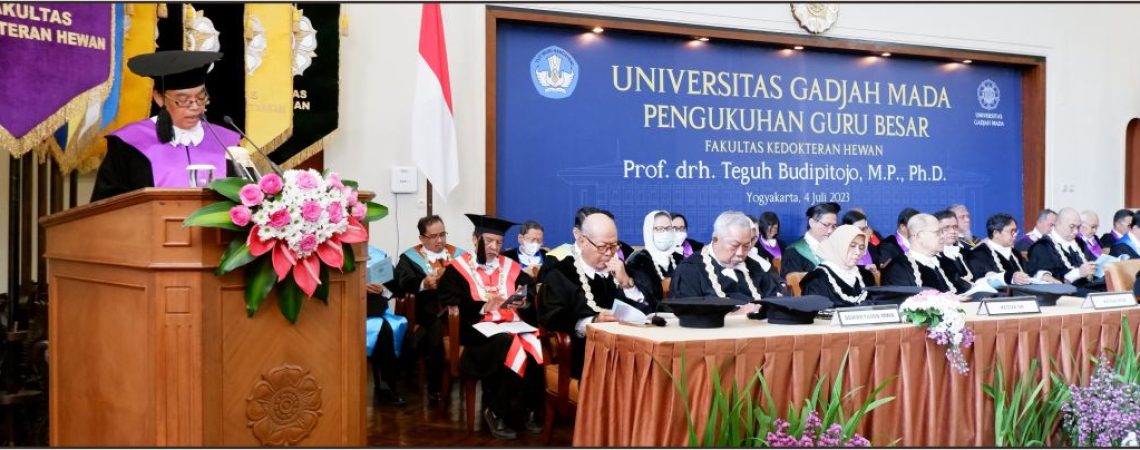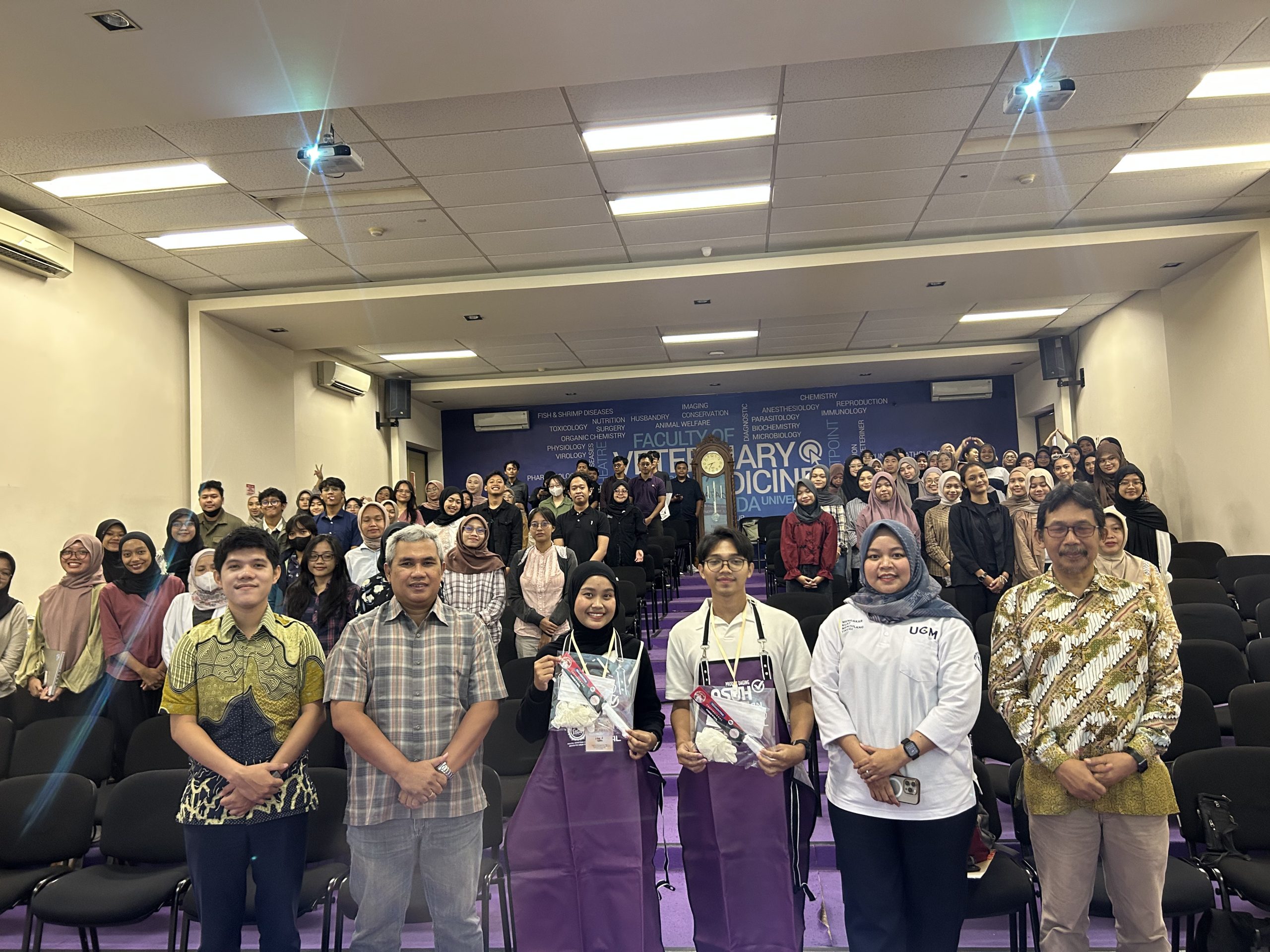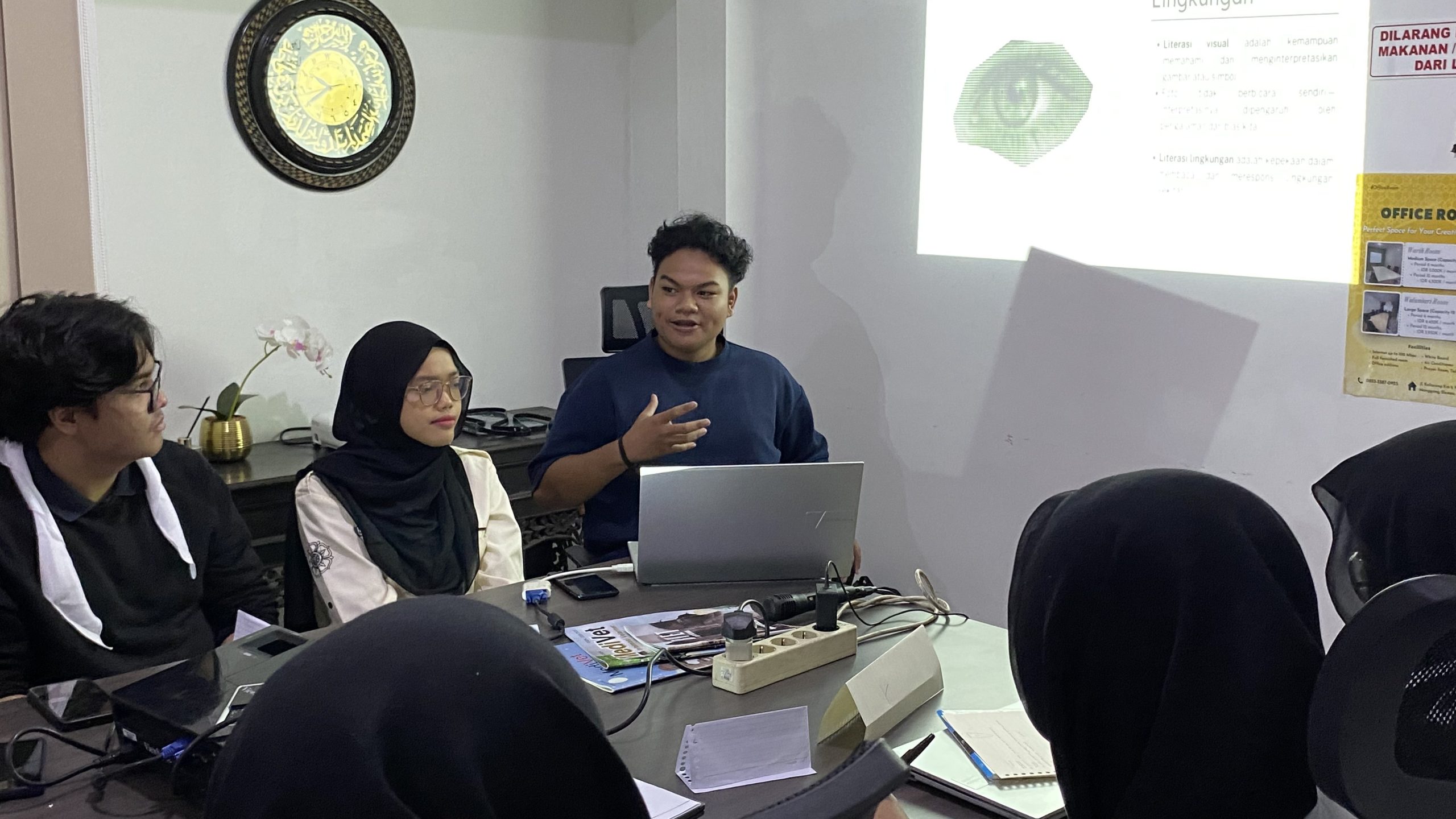The dean of Faculty of Veterinary Medicine, Universitas Gadjah Mada (UGM), Prof. drh. Teguh Budipitojo, M.P., Ph.D., confirmed as Professor in Anatomy, at Senate Hall, Central Building of UGM, on Tuesday (4/7/2023). He delivered a speech entitled ‘The Role of Animal Anatomy in Revealing Variations in the Distribution of Molecular Signaling in Animals and Underlying the Development of Degenerative Disease Therapy.’
In his speech, Prof. Teguh explained the important role of signaling molecules to coordinate cell activities and maintain homeostasis in organisms.
“Its function is to regulate cell growth and differentiation. For example, increase the heart rate, increase blood pressure, regulate electrolyte and fluid balance, regulate reproduction, regulate sleep rhythms and so on,” he said.
In terms of the function of regulating metabolism, several signaling molecules play a role in regulating the metabolism of glucose and fat in the body. The immune system also relies on signaling molecules.
“The process of signaling molecules is very important for maintaining health and normal body function,” he said.
According to Prof. Teguh, the workings of molecular signaling are divided into three main stages. Namely the delivery of signaling molecules produced by the source cell and released into the surrounding environment.
“The field of science that I am studying is anatomy, which helps understand the workings of organs and system organs in the body which provides a basis for other studies such as physiology, pathology, pharmacology and so on. Animal anatomy also plays an important role in the development of drugs for degenerative diseases, It also accelerates theoretical understanding of the process of disease occurrence as a basis for discovering biological substances that can cure these degenerative diseases,” he explained.
In his research, Prof. Teguh also identified various types of signaling molecules at the cellular level in various animal species. The results of his research are efforts to document the anatomical structure and distribution of various types of signaling molecules for various species, including the documentation of various biological richness and uniqueness of several species of endemic animals in Indonesia.
Starting from Holstein Friesian cattle (Bos taurus), which examines signaling molecules that play a role in the digestive process, stimulates pancreatic hormones and smooth muscle contractions. This research also proves that signaling molecules play a role in the reproductive process.
Then weasel (Paradoxorus hermaphroditus). This study found the presence of signaling molecules such as glucagon, chromogranin, gastrin and serotonin in the cells that make up the pancreas and duodenum of the civet.
There is also the Javan porcupine (Hystrix javanica) which is an endangered species. Mastery of gastrointestinal structure and molecular signaling will support the success of captive breeding efforts to increase the Javan porcupine population.
“Based on various research data in which I was involved, it can be concluded that the presence, distribution and expression of various signaling molecules in various animal species varies greatly,” he said.
UGM Chancellor Ova Emilia said, Teguh Budipitojo is one of 397 active professors at Gadjah Mada University.
“And at the faculty level, he is one of 14 active Professors owned by the Faculty of Veterinary Medicine, as well as the first Professor in the field of Animal Anatomy,” he concluded.
After the inauguration ceremony, it was followed by a thanksgiving event which was held at the 3rd Floor Auditorium of the Faculty of Veterinary Medicine UGM.






